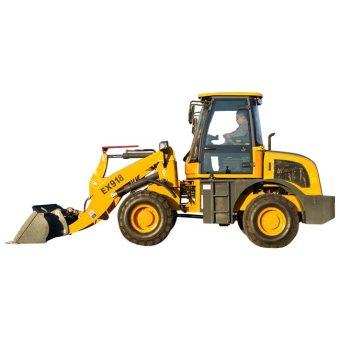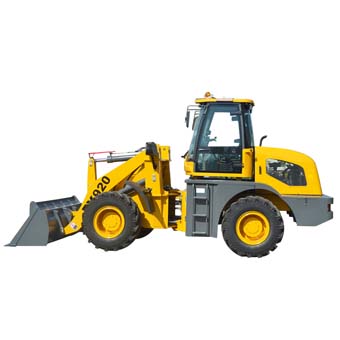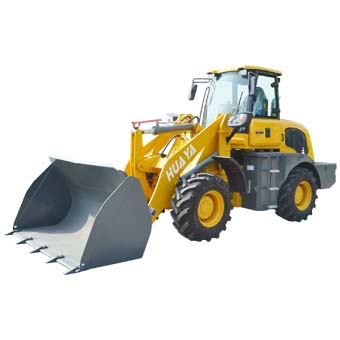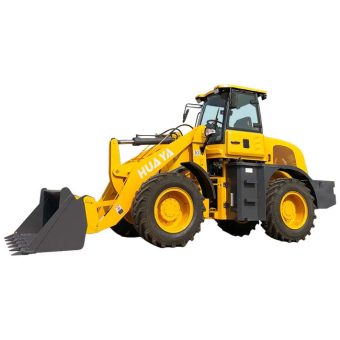
News
When you’re about to invest in a loader, whether it’s for construction, agriculture, or material handling, the decision isn’t one to take lightly. Buying a loader means spending thousands, sometimes hundreds of thousands, of dollars. But here’s the question many prospective buyers ask: Can I rent a loader before buying? The good news is that in most cases, yes—you absolutely can. Renting before purchase is becoming a common practice for smart buyers who want to make sure they’re choosing the right machine for their business.
Think of it like test-driving a car. Would you spend big money on a vehicle without first taking it for a spin? Of course not. The same principle applies to heavy equipment like loaders. Renting gives you peace of mind, firsthand experience, and the confidence that your investment will pay off.
Yes, you can. Most dealerships, equipment rental companies, and even some manufacturers provide rental options for prospective buyers. The idea is simple: before you commit to purchasing, you can try the loader out in real-world conditions.
Some dealerships even have “rent-to-own” programs, where the rental fees are later deducted from the purchase price if you decide to buy. This makes the transition from trial to ownership seamless. Equipment suppliers know buyers want assurance, so offering rentals is a win-win strategy for both sides.
Hands-On Experience with the Machine
No amount of brochures, YouTube videos, or sales talk can match the value of actually operating the loader. Renting lets you see if the power, maneuverability, and stability align with your needs.
Understanding Job-Specific Performance
Every job site is different. Maybe you’re working on soft soil, compact gravel, or tight spaces. Renting a loader helps you confirm whether the machine you’re considering is suitable for your actual environment.
Testing Comfort and Operator Controls
Operator fatigue is real. By renting, you can test the seat comfort, joystick controls, visibility, and overall ergonomics. A machine that looks powerful on paper might feel awkward in practice.
Reducing Purchase Risks
Buying a loader without trying it first is like rolling dice with your money. Renting minimizes risks by giving you confidence in your final choice.
Wheel Loaders
Ideal for large-scale construction, mining, and quarry work. They handle heavy loads and move large quantities of material quickly.
Skid Steer Loaders
Compact, versatile, and popular for landscaping, construction, and farm use. Easy to maneuver in tight spaces.
Backhoe Loaders
A two-in-one machine, combining digging and loading functions. Perfect for municipalities and small contractors.
Compact Track Loaders
Equipped with tracks instead of wheels, they perform better on soft or muddy ground. Great for uneven terrain.
Mini Loaders for Smaller Projects
For light-duty projects like property maintenance, gardening, or small-scale construction, mini loaders are cost-efficient and easy to rent.
Duration of Rental Period
Short-term rentals are best for trial runs. Some companies offer daily, weekly, or monthly rental options depending on your testing needs.
Rental Costs vs. Ownership Costs
Compare the rental fee with the long-term ownership costs. A loader is a big investment, but renting too long can become expensive.
Insurance and Liability Coverage
Accidents happen. Always confirm if the rental includes insurance or if you’re responsible for coverage during the rental period.
Maintenance Responsibilities During Rental
Some rental companies cover routine maintenance, while others expect you to handle fuel, cleaning, and minor upkeep.
Rental Agreement Terms
Never skip reading the fine print. Check for mileage or hour limits, delivery fees, and conditions for returning the equipment.
Start by checking local and national rental companies. Many top dealerships advertise loader rental services.
Narrow down which loader type matches your project. Do you need high horsepower, compact size, or heavy-duty capacity?
Ask for a one-day or one-week rental to properly test the machine. This prevents overspending on long-term rentals.
Don’t just run the loader in an empty lot—use it on actual job tasks. Test lifting, digging, maneuvering, and fuel efficiency.
If you have employees or operators, ask for their feedback. They’ll often notice details about comfort, efficiency, and ease of use that you might miss.
Demo Programs Offered by Dealers
Some dealers provide free or low-cost demo programs. These are usually short but give you an idea of how the loader performs.
Leasing with Buyout Options
Leasing allows you to use the machine for longer, with the option to purchase it at the end of the lease.
Used Loader Test-Drives
Buying used? Many sellers allow you to test drive used loaders before closing the deal.
Ignoring Total Cost of Rental
Don’t forget delivery charges, insurance fees, or extra hours. These hidden costs add up.
Not Checking Machine Condition Before Signing
Always inspect the loader before renting. Look for tire wear, leaks, or damaged attachments.
Forgetting to Evaluate Long-Term Suitability
A loader may perform well in a short trial, but ask yourself: Will this machine still serve my business five years from now?
Final Thoughts on Renting Before Buying
Renting a loader before buying is more than just a test—it’s a smart investment strategy. It helps you avoid costly mistakes, ensures you’re buying the right model, and gives you peace of mind that your money is being well spent. Whether you’re a contractor, farmer, or property manager, renting first is like having a safety net before leaping into ownership.
So, can you rent a loader before buying? Absolutely. It’s not just possible—it’s highly recommended. By renting, you gain hands-on experience, reduce risks, and make informed decisions. Instead of gambling with your investment, renting lets you try before you buy, ensuring your loader is a perfect match for your projects.
Rental periods vary from one day to several months. Most buyers rent for a week to properly test the machine.
Some dealerships offer rent-to-own programs, where rental fees are deducted from the final purchase price.
Yes, most rental companies offer buckets, forks, grapples, and other attachments to test versatility.
Not all, but many reputable dealers and rental companies do. Always ask in advance.
Yes. Renting is cheaper for short-term trials, while leasing is better if you want to use the machine for a longer period with a potential buyout option.
Previous: What are the Wheel Loader Attachments?



